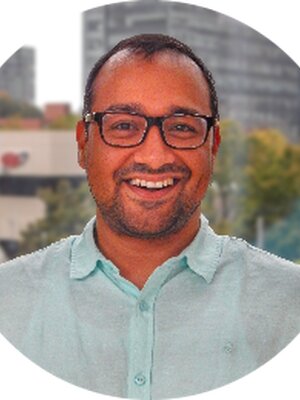
Dr. Pronoy Rai's academic journey was enriched by the Gender and International Development (GRID) minor program. WGGP fellowships from the program supported his research in India and paved the way for his academic career. Dr. Rai is also a dedicated educator, teaching "Gender and International Development" to undergraduates.
Current position: Dr. Pronoy Rai is an associate professor of Geography
Location: at Portland State University in Oregon.
What is the focus of your current work and/or subject of your current research? I am a human geographer, and my recent work encompasses scholarly areas such as migration, social change, climate and agrarian change, and gender and masculinities. My regional focus is in rural India and Portland, Oregon.
How has your GRID minor helped you in your career? First, WGGP fellowships (available to GRID minors) supported my research in India, which is an important reason I could publish my work and find an academic job of direct relevance to the minor. Second, I teach Gender and International Development to undergrads, and I credit my education in the GRID minor to my ability to teach this course well (I believe!) to my students. Lastly, taking the minor allowed me to get outside of my home discipline/department (of Geography) and learn to explain and exchange ideas with students from diverse disciplinary backgrounds – from Anthropology to Social Work. It’s a great, transferable skill to acquire, which helps beyond graduate school and the academy.
Do you have any advice or suggestions for current GRID Students? First, for students who do not have a strong background in international development, the minor is, more broadly, an excellent introduction to poverty, inequality, and social justice in the Global South. So, I hope students can see this as a great learning opportunity in and of itself. Second, I hope the program is as diverse as it was in my time (seven years ago!) in terms of the representation of students from all over the world and various disciplines. If so, I’d really encourage students to make the most of the experience by getting to know fellow students, their life and work experiences (which are fascinating), and how students of different disciplines understand gender relations in the context of global development. It’s an opportunity rarely available within one single discipline or department. Lastly, use all available resources on campus to draft strong applications for fellowships offered by WGGP and other cognate units on campus: all small and significant sources of support add up and help you achieve your academic goals.
Connect with Dr. Rai on LinkedIn and Twitter for insights into his research and academic pursuits.